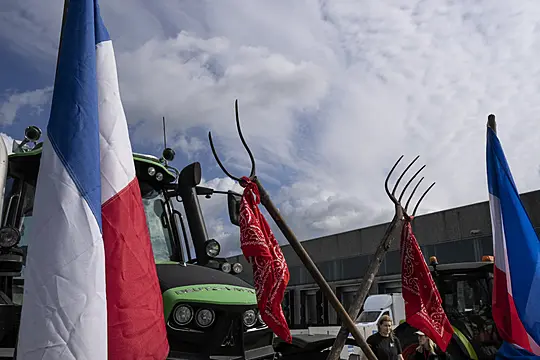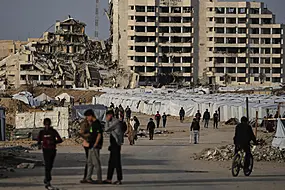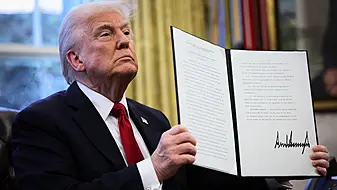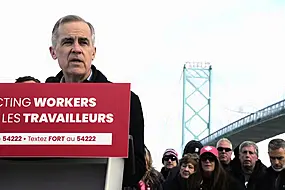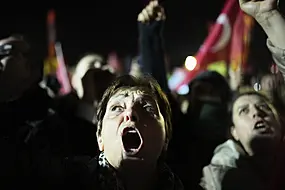Dutch farmers angry at government plans to slash emissions have used tractors and lorries to blockade supermarket distribution centres.
The move on Monday is the latest action in a summer of discontent in the country’s lucrative agricultural sector.
The Netherlands’ busiest aviation hub, Schiphol Airport, urged travellers to use public transport to get to its terminals amid fears the blockades would also target airports.
Fishermen acting out of solidarity with the farmers also blocked a number of harbours.

The unrest among Dutch farmers was triggered by a government proposal to slash emissions of pollutants such as nitrogen oxide and ammonia by 50% by 2030.
Provincial governments have been given a year to formulate plans to achieve the goal.
It is expected to lead to reducing livestock and buying up some farms whose livestock produce large amounts of ammonia.
Farmers argue they are being unfairly targeted and shown little concern for their futures.
Police looked on but did not immediately take action as some 25 tractors parked outside a distribution centre for supermarket chain Albert Heijn in the town of Zaandam, just north of Amsterdam.
Placards and banners on the tractors included messages such as “our farmers, our future”.

The umbrella organisation for supermarkets called on police to take action and warned of possible shortages on supermarket shelves.
“Blockades of distribution centres hurt the citizens of the Netherlands. Supermarkets do everything they can to keep the stores stocked, but if blockades continue, it could lead to people not being able to do their daily shopping,” the Central Bureau for Food Trade said in a statement.
Traffic authorities warned motorists to prepare for delays and possible slow-moving tractors on the nation’s motorways, but said there were few problems early on Monday for commuters, possibly because many people opted to work from home rather than get stuck in traffic.
Over the weekend, the government appointed an intermediary to lead talks between farmers’ organisations and officials drawing up pollution-reduction measures.
However, Prime Minister Mark Rutte has ruled out negotiating with farmers responsible for radical protests.
Mainstream farming lobby group LTO described the mediator, Johan Remkes, as “an administrative heavyweight with deep knowledge” of the issues and said it is open to talks with him.
According to LTO, there are nearly 54,000 agricultural businesses in the Netherlands with exports totalling 94.5 billion euros (£81.3 billion) in 2019.
